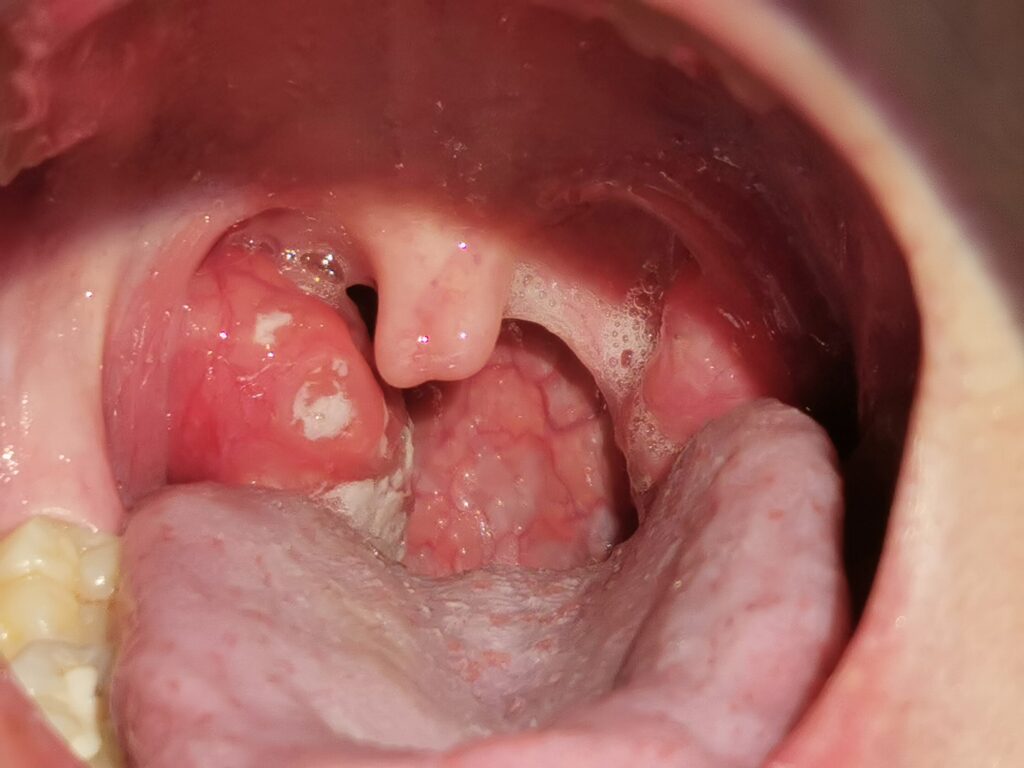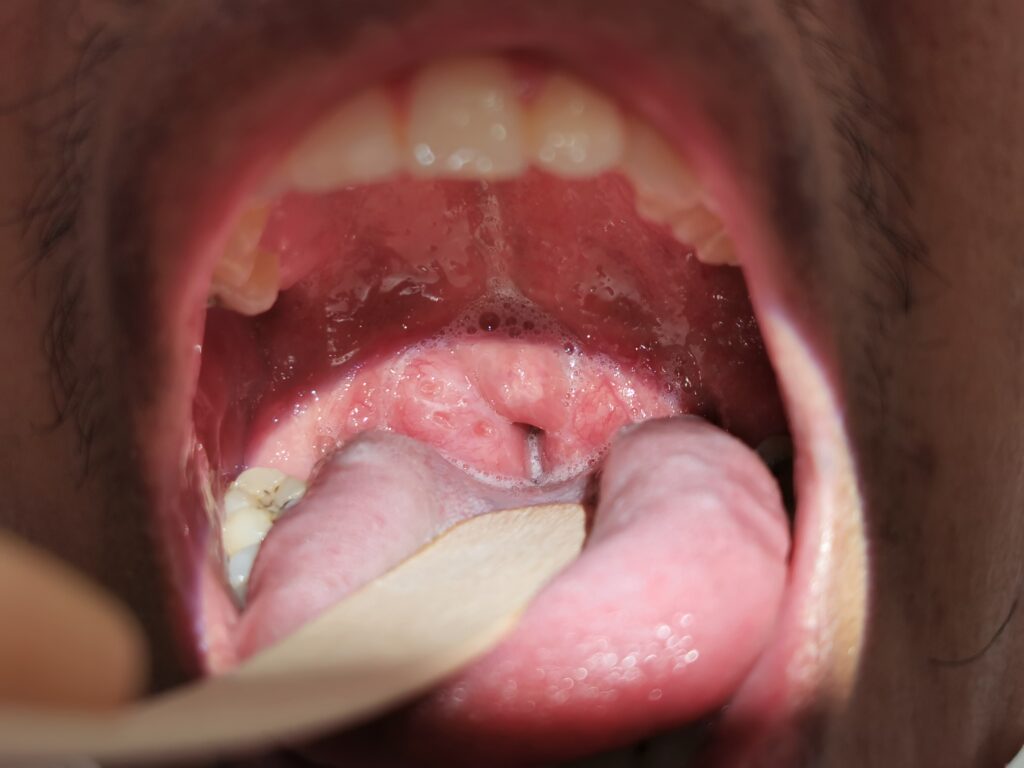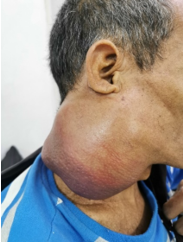The tonsils are a pair of small roundish structures located in the back of the throat that help protect the body from infections. Other than tonsillitis, an infection of the tonsils, there are several other diseases and conditions that can affect these small organs. As an ENT surgeon, it is important for my patients to understand the various diseases that can affect the tonsils, to facilitate early diagnosis and effective treatment. In this blog, we will explore some of the most common diseases and conditions that can impact the tonsils, their symptoms, and treatment options.
Tonsillitis

Tonsillitis is a common condition where the tonsils become inflamed due to a viral or bacterial infection. It can cause symptoms such as sore throat, difficulty swallowing, fever, and swollen lymph nodes. Treatment typically involves rest, fluids, and over-the-counter pain relievers. In some cases, antibiotics may be prescribed by an ENT doctor if the infection is bacterial.
Hypertrophic Tonsils
Hypertrophic tonsils are tonsils that are larger than normal. They can cause problems with breathing, swallowing, and sleeping. In some cases, hypertrophic tonsils may need to be surgically removed by an ENT surgeon to improve breathing and prevent further health problems.

Tonsillolith
A tonsillolith, also known as a tonsil stone, is a small white or yellowish lump that can form on the tonsils. They are usually harmless, but can cause bad breath and discomfort. In some cases, they may need to be removed by an ENT doctor.
Peritonsillar Abscess
A peritonsillar abscess is a collection of pus that forms near the tonsils. It can cause symptoms such as severe throat pain, difficulty swallowing, and fever. Treatment is usually done by an ENT doctor and typically involves antibiotics and drainage of the abscess.
Tonsillar Cancer
Tonsillar cancer is a relatively rare form of cancer that can develop in the tonsils. It can cause symptoms such as sore throat, difficulty swallowing, and ear pain. Treatment may involve surgery, radiation therapy, or chemotherapy.

In conclusion, if you are experiencing any symptoms related to your tonsils, it’s important to see an ENT doctor or head and neck surgeon for proper diagnosis and treatment. With the right care, you can manage your symptoms and prevent serious health problems. Don’t hesitate to seek medical help if you have concerns about your tonsils.
Experience expert ENT surgical care tailored to your needs.
Book now to schedule your appointment with a skilled ENT surgeon near you and take the first step towards a healthier you.
Your well-being is our top priority.

